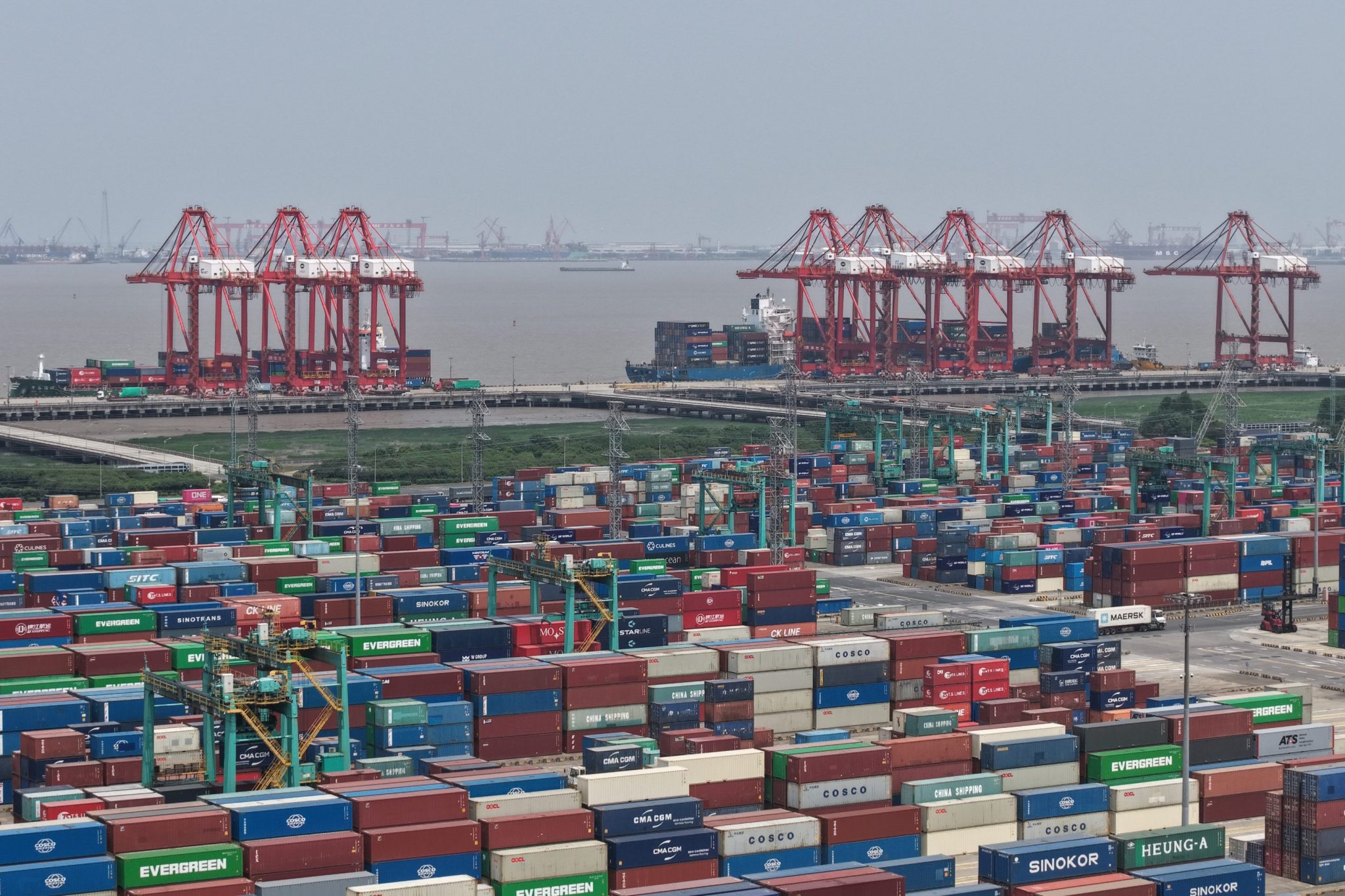Trade negotiators from China and the U.S. announced on Sunday that they had struck a slew of agreements on issues spanning tariffs, shipping fees, fentanyl, and export controls after two days of talks in Malaysia. This development marked a significant cooling of tensions following a recent volley of tariff threats and fresh export curbs that had threatened to derail the bilateral relationship.
Striking a conciliatory tone, the People’s Daily said on Monday that the progress showed Beijing and Washington were capable of handling their differences. “Neither side was blindsided by these issues; instead, they focused on solving the problems,” stated the commentary penned by *Zhong Sheng*—a Chinese homonym for “Voice of China,” often used to articulate Beijing’s foreign policy views.
Market reactions to the announcements were positive. The Hang Seng China Enterprises Index rose as much as 1.3% on Monday, while the broader MSCI AC Asia Pacific Index advanced 1.5% to a new intraday record. China’s 10-year government bond yields edged up as demand for safety assets ebbed following the encouraging trade talks results.
Chinese President Xi Jinping and U.S. President Donald Trump are expected to sign off on the terms this week in South Korea when they meet in person for the first time since Trump returned to power. This meeting could unveil details concerning issues such as China’s purchases of U.S. soybeans, Washington’s plans for shipping fees on Chinese vessels, and Beijing’s rare earth export controls.
“We expect the leaders to approve the deal, but whether it will bring lasting relief to markets is less clear—the new reality for U.S.-China ties appears to be one of frequent ruptures and short-term fixes,” wrote Chang Shu, David Qu, and Jennifer Welch of Bloomberg Economics in a recent note. From Beijing’s perspective, they added, fewer external uncertainties will provide policymakers with more time to focus on supporting the domestic economy and enhancing technological self-sufficiency.
While Chinese industrial companies saw their earnings surge the most in nearly two years last month, challenges remain. The job market is still gloomy, and a years-long housing crash continues to linger.
The People’s Daily commentary also called on the U.S. to adhere to the trade and economic consultation mechanism led by U.S. Treasury Secretary Scott Bessent and Chinese Vice Premier He Lifeng. Export curbs announced by U.S. officials outside that framework have disrupted the system repeatedly in recent months, prompting Beijing to tighten its rare earth supply chain—a critical resource for American manufacturing.
Secretary Bessent expressed optimism that China would delay its latest rare earth restrictions “for a year while they reexamine it” following the recent talks. Previously, it had been unclear how Beijing planned to enforce proposed curbs asserting control over any global shipment containing even a trace of certain rare metals from China, a move that had drawn outcry in Europe as well.
Another potential area for quick progress is the 20% fentanyl tariff the U.S. has imposed on Beijing to pressure authorities into halting the flow of precursor chemicals used to manufacture the deadly drug. Relief on that levy—which stacks on top of the broader tariffs—could be a boon for China at a time when domestic demand remains weak.
Since April, China and the U.S. have held five rounds of talks. These came after the U.S. unveiled the highest tariffs since the 1930s, leading to Chinese exports to America facing a cumulative 55% levy. The People’s Daily piece framed these talks as proof that neither nation wants to decouple. “The two sides should meet each other halfway, cherish outcomes of every dialogue, and continuously build mutual trust and manage differences,” the publication urged.
Despite the latest dovish language from both sides, global investors are learning to embrace a new normal characterized by “tension, escalation, and truce,” wrote Ting Lu, chief China economist at Nomura Holdings Inc., in a Monday note. “It’s good for the world’s top two largest economies to dial down tensions,” he added, “but we believe the superpower rivalry will likely escalate in the future.”
https://fortune.com/2025/10/27/china-asks-us-protect-results-xi-trump-meeting/
